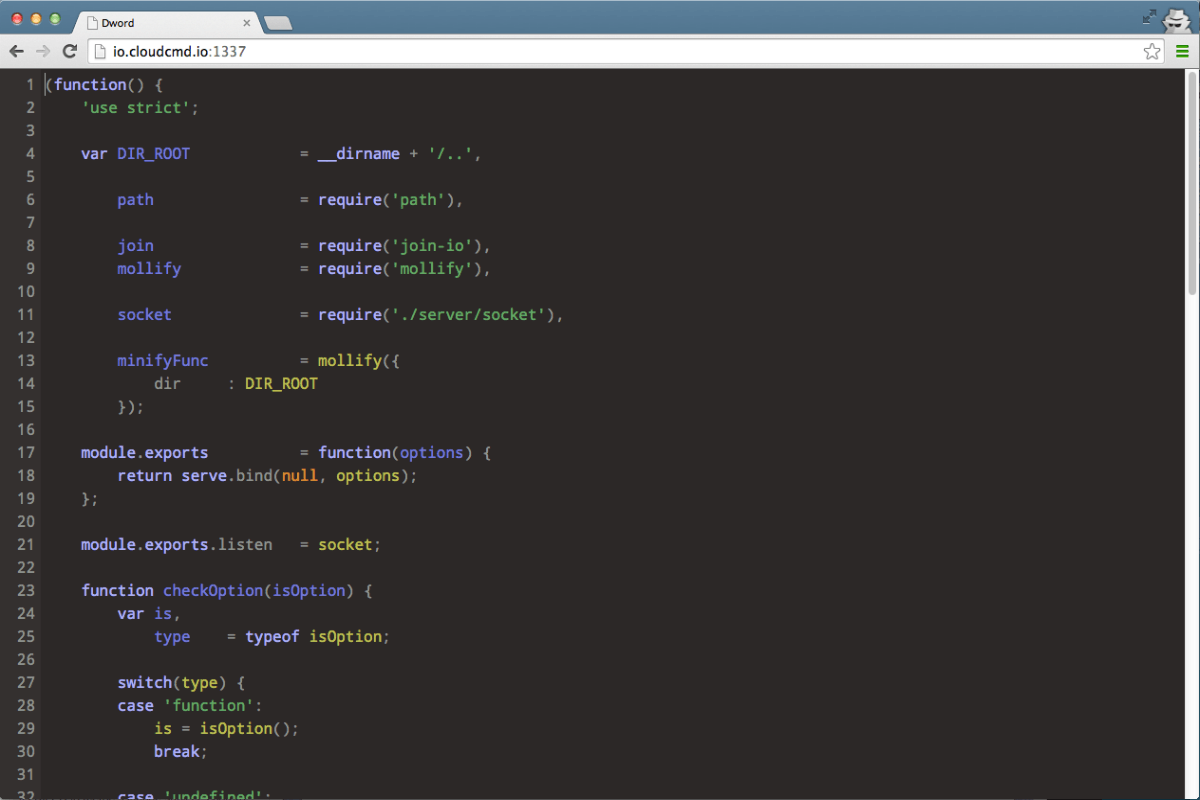dword
v15.0.4
Published
Web editor based on CodeMirror
Downloads
2,080
Maintainers
Readme
Dword 

Web editor based on CodeMirror. Fork of edward.

Features
- Syntax highlighting based on extension of file for over 90 languages.
- Built-in
emmet(for html files) - Drag n drop (drag file from desktop to editor).
- Configurable options (json/edit.json could be overriden by
~/.dword.json)
Install
npm i dword -g
Command line parameters
Usage: dword [filename]
|Parameter |Operation
|:----------------------|:--------------------------------------------
| -h, --help | display help and exit
| -v, --version | output version information and exit
Hot keys
|Key |Operation
|:----------------------|:--------------------------------------------
| Ctrl + s | save
| Ctrl + f | find
| Ctrl + h | replace
| Ctrl + g | go to line
| Ctrl + e | evaluate (JavaScript only supported)
API
dword could be used as middleware for express. For this purpuse API could be used.
Server
dword(options)
Middleware of dword. Options could be omitted.
const dword = require('dword');
const express = require('express');
const app = express();
app.use(dword({
root: '/', // default
online: true, // default
diff: true, // default
zip: true, // default
dropbox: false, // optional
dropboxToken: 'token', // optional
}));
app.listen(31_337);dword.listen(socket)
Could be used with socket.io to handle editor events with.
const io = require('socket.io');
const socket = io.listen(server);
dword.listen(socket, {
// optional
prefixSocket: '/dword',
// optional
auth: (accept, reject) => (username, password) => {
accept();
},
});Client
Dword uses codemirror on client side, so API is similar.
All you need is put minimal html, css, and js into your page.
Minimal html:
<div class="edit" data-name="js-edit"></div>
<script src="/dword/dword.js"></script>Minimal css:
html, body, .edit {
height: 100%;
margin: 0;
}Minimal js:
dword('[data-name="js-edit"]', (editor) => {
editor.setValue('hello dword');
console.log('dword is ready');
});Client API
dword(selector, callback)
selector: stringcallback: EditorCallback
Initialize new instance
editor.setValue(value)
value: string
Set value to editor.
editor.getValue()
returns: string
Get value from editor.
Types
interface Editor {
setValue: (value: string) => void;
getValue: () => string;
}
type EditorCallback = (editor: Editor) => void;
type Dword = (selector: string, callback: EditorCallback) => void;For more information you could always look around client/dword.js directory.
Related
License
MIT
